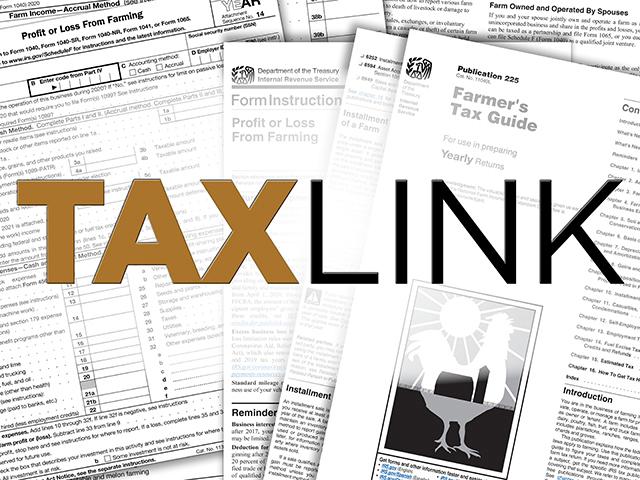Taxlink
Is It Better to Buy or Lease Equipment?
Crop prices have remained high and, depending on where you live, yields have been good. With extra income, many farmers are looking to acquire new equipment. When getting equipment, your choices are to purchase or lease. I've also seen some dealerships offer a rotating lease, where you lease all of your equipment and turn it in every year or two on a replacement schedule for a relatively small yearly payment (because used equipment retains its value).
There are a few factors to consider when determining which is better. The high value of used equipment generally reduces lease payments. The benefit is you get more for less. The drawback is that your lease payments are lower, so you have less of a deduction. Interest rates also affect the cost of acquiring equipment. Of course, purchasing equipment outright eliminates the need to look at the interest rate impact. If you are financing the entire amount, higher interest rates might make leasing more attractive. This is because with a lease, you are financing only a fraction of the total price. If you are trading or putting money down, the interest rate impact might be neutral.
Let's take a look at leases since they are more complicated. There are two types of leases: operating and capital. An operating lease is what most people think of when they hear the term "lease." You make payments for a period of time and have the option to purchase the equipment at the end of the lease for its fair market value. When a lessor/lessee gets too aggressive with leasing terms, the IRS may deem it to be a capital lease. This is because the farmer essentially has purchased the equipment and makes "lease" payments instead of principal and interest. If you enter into a capital lease, the IRS views it as the purchase of new equipment. However, because you have purchased the equipment, you must depreciate it, not expense the lease payments.
P[L1] D[0x0] M[300x250] OOP[F] ADUNIT[] T[]
One area lessors and lessees get tripped up is the ambiguity in residual value (purchase prices at the end of the lease). There is not clear guidance, but the IRS likes to see a 20% residual value. However, the real test is the economic substance of the transaction: Will the lessee purchase the property at the end of the lease? To put it simply, the residual value must be high enough to make it an attractive deal for the lessee to purchase the equipment.
The tax law also puts a wrinkle into leasing. Under the old tax laws, if you traded depreciated equipment for new leased equipment, it was deemed a sale. The gain was amortized for the term of the lease. Under the new tax law, 1031 exchanges (i.e., trades) are not allowed on equipment. So, when you turn in your tractor and use the proceeds to pay down a lease, the gain is taxable regardless of the type of lease. The replacement equipment has a tax basis equal to its purchase price, but 100% bonus depreciation or Section 179 expensing are available for the immediate tax write-off.
But, what is right for you? Leasing might allow you to get a bigger bang for the buck. However, if you are looking to offset income, you might want to purchase the equipment.
**
-- DTN Tax Columnist Rod Mauszycki, J.D., MBT, is a tax principal with CLA (CliftonLarsonAllen) in Minneapolis, Minnesota.
-- Read Rod's "Ask the Taxman" column at https://www.dtnpf.com/…
-- You may email Rod at taxman@dtn.com
[PF_1122]
(c) Copyright 2022 DTN, LLC. All rights reserved.




